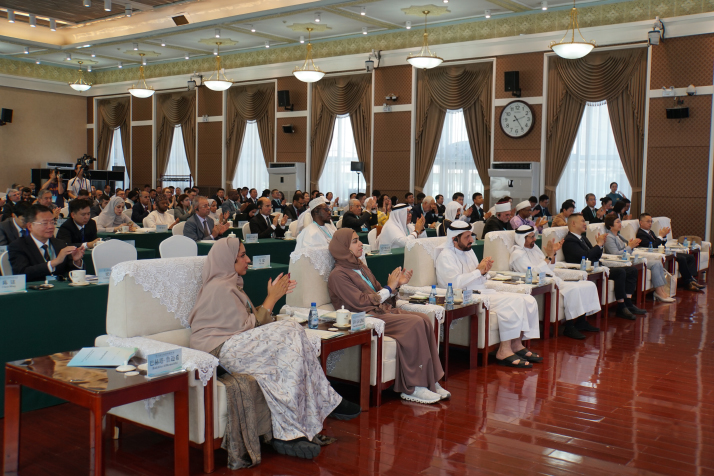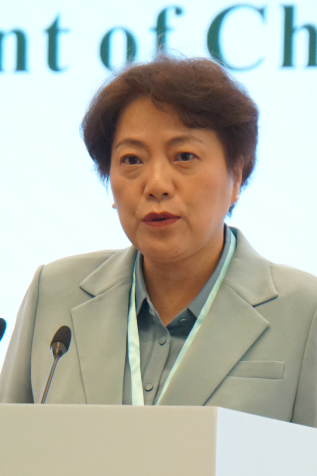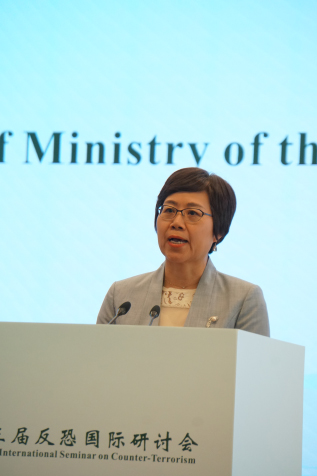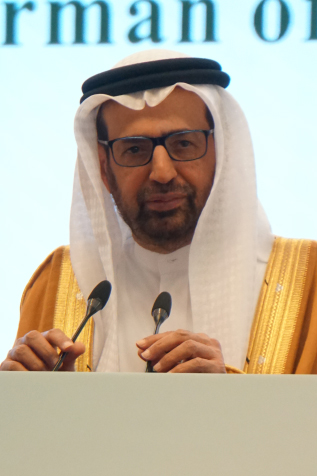| Xinjiang Today |
| Building cooperation, rejecting politicization and division | |
|
|
 The Third International Seminar on Counterterrorism takes place in Urumqi on August 26 (WANG YAJUAN)
Terrorism is a threat to humanity and a common challenge confronting every nation. No country can remain untouched or immune to its dangers. Thanks to the concerted efforts and joint actions of the international community, terrorist forces have been significantly weakened, and notable progress has been achieved in the global fight against terrorism. Against this backdrop, the Third International Seminar on Counterterrorism, along with three sub-events, was held in Urumqi on August 26. Experts and representatives in the field of counterterrorism from around the world exchanged insights on strengthening global cooperation to address this issue. Edited excerpts from their remarks follow:  Chen Bo
Chen Bo, President of the China Institute of International Studies Today's international situation is marked by intertwined instability and transformation, where hegemonism and power politics continue to assert themselves. Certain countries, in pursuit of maintaining their own dominance, persistently provoke geopolitical confrontations, leading to frequent regional conflicts and turmoil. Under these circumstances, terrorism is seizing the opportunity to stage a comeback, with major attacks occurring repeatedly. According to statistics, for the first time in seven years, the number of countries experiencing terrorist attacks increased in 2024, rising from 58 to 66. The number of countries recording at least one death from terrorism was 45 in 2024, with reported fatalities reaching 7,555. In response to the evolving nature of terrorist activities, targeted countermeasures must be taken. Today, extremist ideologies and terrorist operations are increasingly interlinked. The misuse of advanced technologies such as encrypted communication, cryptocurrency and AI, has further amplified the threat, enhancing the stealth and destructive potential of terrorist operations. At the same time, regional conflicts and terrorism have begun to reinforce each other, generating transnational security challenges. Moreover, some countries exploit counterterrorism for self-interest, politicizing and instrumentalizing the issue.  Members of an international lawmakers’ delegation visit an exhibition on Xinjiang’s fight against terrorism and extremism in Urumqi on September 15 (WANG YAJUAN)
History has shown that tolerance and sanctuary offered to terrorist and extremist groups by certain nations has led to severe security consequences for the international community. Worrying signs of such tendencies are reemerging, demanding our utmost vigilance.
The international community must set aside ideological biases and geopolitical calculations, strengthen a united front against terrorism and reject the politicization and instrumentalization of counterterrorism. We must also actively study and address the impact of new technologies on global counterterrorism efforts, while harnessing those very technologies—particularly AI—to strengthen our capacity to prevent and combat terrorism. In recent years, some Western countries have resorted to fabricating false accusations against China and attempting by every means to tarnish the country's image, smear its policies in Xinjiang and disrupt its counterterrorism and deradicalization efforts. Facts have demonstrated that China's lawful measures in fighting terrorism and extremism have effectively safeguarded the safety of its people and earned genuine support from all ethnic groups. These efforts have also provided valuable experience for the international community in adopting comprehensive, targeted strategies to eliminate the sources of terrorism.  Wang Lixin
Wang Lixin, Director General of the Department of Security Cooperation of the Chinese Ministry of Foreign Affairs The shadow of global terrorism persists. Although repeatedly targeted by countermeasures, it continues to reemerge and adapt, posing evolving threats and challenges. In response, we must engage in serious reflection, learn from past lessons and adopt new approaches to explore more effective, long-term strategies that address the root causes of terrorism. With a strong commitment to the security, wellbeing and future of humanity, Chinese President Xi Jinping has put forward the Global Development Initiative (GDI), the Global Security Initiative (GSI) and the Global Civilizations Initiative (GCI). The vision of building a community with a shared future for humanity offers a Chinese approach to enhancing global security governance and addressing common challenges. It also provides new perspectives and pathways for deepening international counterterrorism cooperation and overcoming persistent obstacles in the global fight against terrorism. Underdevelopment and economic hardship provide fertile ground for the rise of terrorism. The GDI prioritizes development and emphasizes safeguarding and improving people's livelihoods through growth. We must firmly grasp development as the "master key" to solving problems, accelerate the implementation of the UN 2030 Agenda for Sustainable Development and focus on growing economies, eliminating poverty, creating jobs and improving living standards. By addressing these root causes, we can cut off the lifeline of terrorism and break the vicious cycle in which poverty fuels extremism and violence, which in turn deepens deprivation. A lack of cohesive and concerted action among nations remains a major obstacle to effective global counterterrorism cooperation. The GSI underscores that humanity is an indivisible security community and advocates for a common, comprehensive, cooperative and sustainable approach to security. It is essential for all countries to earnestly fulfill their international counterterrorism responsibilities, firmly reject double standard and selective counterterrorism practices and resolutely oppose exploiting counterterrorism efforts to pursue geopolitical gain. Extremist ideologies and distorted belief systems remain an ideological breeding ground for the spread of terrorism. The GCI calls for advocating the common values of humanity—peace, development, fairness, justice, democracy and freedom—while respecting the diversity of civilizations. We must enhance exchanges and mutual learning among different countries, ethnicities, civilizations and religions, foster dialogue on an equal footing, encourage harmonious coexistence and work to dissolve the so-called "clash of civilizations."  Ali Rashid Al Nuaimi
Ali Rashid Al Nuaimi, Chairman of the World Muslim Communities Council in the United Arab Emirates Terrorism is not a threat confined to any single country or organization—it endangers all of humanity. Extremist ideologies, such as those propagated by groups such as the East Turkistan Islamic Movement, ISIS and Boko Haram, are interconnected. These groups exploit radical beliefs to pursue political agendas, often sharing resources, funding and training networks. Their activities threaten not only China but also other countries across the globe. Many parts of the Islamic world have faced severe terrorist threats. The terrorist forces also spread to conflict zones such as Afghanistan, Libya, Syria and parts of Africa, carrying ideologies that trace back to similar root causes. It is crucial to recognize that some countries exploit terrorism for political gain, providing funding and training to groups in pursuit of selfish geopolitical interests. Such double standard and the politicization of counterterrorism undermine the international rule of law and collective action. Vigilance is needed against terrorists who misuse Islam to justify violence and spread extremist propaganda online. Particular attention should be paid to protecting youth from radicalization through education, fostering patriotism and strengthening their sense of identity within the framework of national law. Religious leaders must also take responsibility to promote intercultural and interreligious dialogue. Islam is a religion of peace, moderation and coexistence. Chinese Muslim clerics should encourage exchanges with global Islamic communities to showcase these values. China is a multiethnic, multireligious nation and its Muslim community is an integral part of its society. Respect for diversity, together with the integration of different cultures and faiths under the legal system, is essential to social harmony. The Chinese Government, including authorities in Xinjiang, has set a successful example in preventing and countering extremism. Effective measures have been implemented to address both the symptoms and root causes of terrorism, such as poverty and ignorance, earning broad public support. Comments to luyan@cicgamericas.com |
|
||||||||||||||||||||||||||||
|